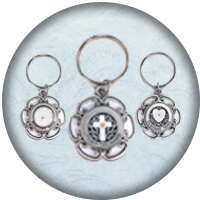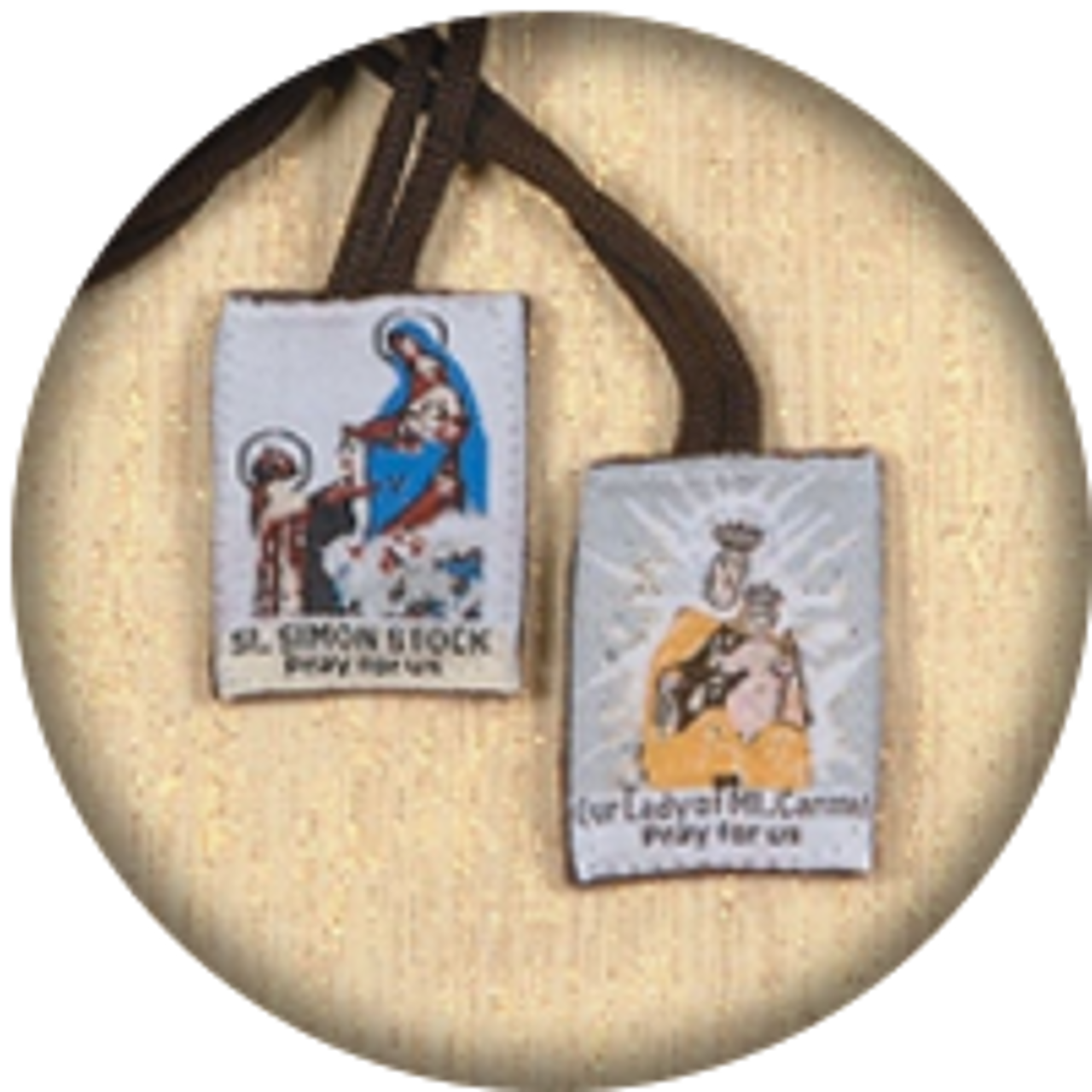"HUMOR AND JOY" SERIES “PART III: JOY or HAPPINESS? The JOURNEY, the FOCUS and the LOVE”
Kathy Boh on 7th Aug 2019
"HUMOR AND JOY" SERIES
“PART III: JOY or HAPPINESS?
The JOURNEY, the FOCUS and the LOVE”
Here, we take a closer look at the differences in these related subjects. You may be quite surprised! Each can have a very blessed place in our lives.
“A merry heart doeth good like a medicine…” or
“A joyful heart is the health of the body…”
Prov. 17:22
At the end of our last blog, we promised some more jokes. (We have three.) But stay with us.
At one time or another, we all face tough times, when most any of us can spend time wondering about many things. We can find ourselves wrestling with a troubled heart or mind…even unconsciously, when we just feel unsettled. Since this blog touches on joy, happiness—and the need for “good medicine” in such times— it is longer than usual. This blog has only two jokes hidden in this search for joy. But the fact is: true joy is worth temporarily foregoing some quick laughs.
We will get back to much of the lighter humor in our later blogs. Promise. “Relationships” and “Aging” are unavoidable. They can be a blessing in many ways… but they give us plenty to laugh about.
For now, we want to explore “gladness” that runs deeper than occasional “humor”. We will share some bits of wisdom concerning true and abiding “joy”. We also will explore some of the overlap in the meanings of “happiness”, “laughter” and “joy”. And we will examine the heart—the sources, ways and means—of biblical joy.
FROM HUMOR TO JOY—CHOICES IN BETWEEN
Right off, we will jump in and take a further look at “joy”—which we touched on previously— even in the midst of the toughest of circumstances. One might say that we are looking at “gladness” on several levels—both deeper and more sustainable, and the more periodic and superficial. We have the quick laugh that hits and passes quickly, and we have the most unfathomable depths of true, abiding joy—even the joy that runs deep.
And, like it or not, when life gets rough, challenging and/or heavy—as it does for each of us, at one time or another— it helps to have any kind of a lift. I, for one, will take the entire extent of possibilities. And I am glad to be equipped for the tough, discouraging, painful, troublesome, shocking circumstances of life… and strengthened for the heart-breaking, difficult, relentlessly trying, tiring, agonizing situations we face in life.
We’re shifting gears here for a bit. We’ll start at the far end of the spectrum, in the “worst” of circumstances— with the most unspeakably dreadful avalanche of vile happenings any human being has experienced—with what Jesus faced. We’ll examine His joy, and then look at some of our own options.
FOCUS MAKES A DIFFERENCE
Philippians 4:8 declares: “Whatever is true, whatever is honorable, whatever is just, whatever is pure, whatever is lovely, whatever is gracious, if there is any” [yes, any at all—even a smidgen] “excellence, and if there is anything” [yes, anything at all] “worthy of praise, think on” [focus on] “these things”. [Phil. 4:8]
Our focus really does make a difference. I believe there is great wisdom in this statement: “if there anything worthy of praise, think about these things…” Where we look and what we choose to dwell upon does make a difference in our perspective; our mood; our motivation; our attitude; and our plan of action (or inaction, if “waiting” and “resting in the Lord” is appropriate). A quick test of this is to simply take a few moments, and focus on the polar opposites (i.e., what is untrue, dishonorable, unjust, impure, ugly, ungracious, vile, atrocious, etc.) See what results.
In Philippians, we are also asked to “Rejoice!” “Rejoice in the Lord always.” [Phil. 4:4] Even when we can find little to feel happy about at any given time, we can find reason to rejoice in Him because of the steadfastness of Who He is—that never changes from everything “good”/ true/ kind/ lovely, etc.— both known and unknown, revealed and unrevealed, imagined and unimaginable, experienced or not.
In verses 6 and 7, God encourages us to cover our anxieties and requests—and everything else—with prayer, petition, and thanksgiving. Then, when we do that, we can discover God’s very own gift of “peace… that surpasses all understanding” In other words, we can’t comprehend how we could have peace in the middle of ‘this particular’ situation or experience, but, amazingly, we find it… He gives it to us. It’s a comfort to know that He wants to give it: peace… tranquility/ harmony/ security/ mutual accord among His children on earth… and… especially a calm, anxiety-free ability to relate to God, Himself.
Internal peace—deriving from a trust in God and His steady, unwavering care— I believe, is one of the foundations of sustained joy. The fruit of “joy” goes beyond surface emotions (which are fleeting) and often has something to do with some other sustained attitudes, choices and perspectives. It includes the capacity to be grateful, give love, and appreciate goodness and beauty when, by “feeling” or “appearances” alone, what’s good or lovely would seem to be—at certain times—in short supply.
I believe part of what sustained joy encompasses is an openness to good things (“above” or around us)—even when we are not actually feeling “good”… (That gets us back to focusing on even the “smidgens”…) Joy has something to do with the capacity to en-joy—again, to appreciate things, whether they be tangible or intangible, things or people, concepts or colors, God’s beauty in nature or some human creative endeavor. The list goes on.
JOY AT THE THOUGHT OF BLOOD-BOUGHT BLESSINGS
“For the sake of the joy that was set before Him, He endured the cross.”
This scripture—a simple little statement—says so, so much concerning Jesus in regard to his own perspective regarding the worst time in His earthly life: “For the sake…” [Hebr. 12:2]. I believe that literal volumes could be written on that one verse—and all the foundations of truth that lie behind it.
The joy that was the motivator to endure the cross was connected, basically, to us, and concerned us. Jesus knew Himself as the Savior… the Way… the Truth… the Life… the gate (the sheep gate)… the door that would open everlasting life and countless blessings to “whomsoever” would believe and “enter through the narrow gate”.
JOY—BEFORE, DURING OR AFTER?
We are not exactly sure at what point in time He had that deep, decisive joy… whether it was before his physical agony (but still during much spiritual, mental, and emotional anguish)— during the extended time period of knowing what lay ahead, and still “set[ting] his face like flint” [Isa. 50:5-7]… or actually during the time covering the Last Supper, His Passion and His death… or all of the above mentioned times?
We presented the concept of “focus”. What about Jesus? Did He allow Himself to remove His attention from the pain screaming from every nerve in His body, so that He could “focus”on the (“true …honorable… just… pure… lovely… gracious… excellent… worthy of praise”) “joy” that “was set before Him”? What could cause such joy in the midst of (or at the anticipation of) the all-time epitome of the opposite of “happy experiences”? Was it that he could imagine those who would come to—and through—Him to salvation and eternal life… knowing far more than we do exactly what that meant to have or to miss, forever?
There are several things that Jesus could have thought… He could know—as a joyous thought—that because He was willing to endure the horrors of suffering that should have been ours—He could not only spare us (paying a price we could not possibly pay as sinners), but He could do what only He could do. He knew that only He could be the sacrifice-price—as perfect holiness Personified… Son of God. He could then (prefer to) think of all the benefits to and for us with joy, rather than focus on (although not ignoring) the sure knowledge of the excruciating ordeal that He would, and did, endure.
The immense motivation that He found could only be explained by a love that is astronomical, unspeakable, and far beyond our ability to comprehend. Because of His totally selfless love for us He was able to focus on the fact (by faith!!... as a human being subject to temptations to fear/doubt/failure/self-will etc.) of some soon-coming-future realities. And, by faith, He considered them as “real” and good and true, though as yet, unseen.
He knew that after His brutal torture and death, there would be so much (and so many) to rejoice over: our cleansing from sin and resultant new life; the availability of forgiveness, grace, power from on high, healing, deliverance—and every blood-bought blessing that anyone would ever receive… for millions and millions of lifetimes, and for the duration of eternity itself.
This God of love—Who IS “Love”—allowed His love to carry Him… to be the reason, the driving force, and the primary influence (among all the torturous fleshly reasons to quit or count us “not worth the price”) to endure the unendurable. What level of love (at the thought of, or the immediate experience of, such agonizing suffering) must someone have/ possess/ abide in… to even consider “joy” as an option amidst such potential or very present and cruel torment?
I would like to offer an exceedingly poor example of a response that Jesus could have given—at any point in His life—instead of walking every last step in His life-giving journey. I was once elected Vice President of an organization that involved parents, education, and children. Officers were in their positions for about a month when some very serious, complex, and long-term problems arose. Immediately the President said, “I quit. I didn’t bargain for this.”
Continually I call that situation to mind and realize just how much Jesus must have been tempted to say and do the same thing. Agreeing to something is one thing; experiencing and feeling the full impact is another. He, Himself, asked, if possible, that the cup (of suffering) be passed from Him… and said that He could have called for 1000 angels. But He stayed the course—all for us.
SELF-SACRIFICING LOVE VS. HAPPINESS
That very real love—so broad, so deep, so enduring (literally, self-sacrificing)—helps produce a level of joy as a mind-set and a heart-set that goes far below the surface circumstances of life. This kind of joy is almost the polar opposite of circumstantial “happiness”. Its source of gladness runs deeper than momentary pleasure or satisfaction or fun. What happens when those more pleasant things are not so available? For some, those things are their purpose for living. But what happens when we find them in short supply, for some reason—for longer than we had hoped, or even for a brief period of time? How do we cope? What helps us to function??
“Sometimes we are tempted to find excuses and complain, acting as if we could only be happy if a thousand conditions were met. To some extent this is because our ‘technological society has succeeded in multiplying occasions of pleasure, yet has found it very difficult to engender joy.’” 1
HOW CAN THERE BE JOY IN ALL THIS?
“The joy of the Lord is my strength.” We all know that there are times when we feel so overcome with pain or grief that we may not feel at all like laughing—and perhaps do not even want to hear about “joy”. Although it runs counter to some lines of reasoning, the truth is: Pain, suffering, trouble and distress make us weak in ways that we cannot fully control. It is a true blessing to find a source of strength at those times. Joy—and rejoicing in, and because of, the Lord—is a source of real strength. Thinking about Who He is and wants to be for us… remembering what He has done in the past (in history, in others’ lives, and in our own lives, especially for those who have allowed Him access as Lord of their lives)… looking at the truth-promises of His word in scripture, and gaining confidence and hope from them… These things can give us cause for joy and rejoicing in Him.
And we don't have to be perfect saints to experience God's joy.
“The bishop of New Orleans regularly said Mass for a small community of cloistered nuns. Every time he arrived, the portress would greet him and the bishop would ask her to pray for the Saints, his favorite football team.
And every time, she made the same reply with the sweetest smile.
“I do, Bishop,” she would say, “but I’m not sure they need it anymore.” 2
We are not sure she ever quite understood his request...
Some of the most noticeable examples of joy in life are found in those who are "hardest hit". Joy comes either as a sought-received-gift-grace from God or as a gift-fruit of the Holy Spirit (developed by the Lord’s presence and rule over our lives). Maybe it's the grace that becomes more obvious against the contrast of horrendous circumstances. Perhaps it’s the gladness of one experiencing a peaceful joy during a time when peace—much less, joy— seems impossible to find. Maybe it’s the fact that, when what’s circumstantial or superficial fails to satisfy (or the situation, itself, brings pain on some level) we find some people seeking and looking more earnestly for something that lasts… something more satisfying…something deeper than the surface feelings and experiences.
PROCESS AND JOURNEY
Any and all persons who ask and seek the Lord for joy can find the grace available. As in some other things, I believe that there is a “line” to cross that is like an airplane breaking the sound barrier… or any other kind of “breaking through”. What I mean by this is: We rarely move suddenly from the place of intense pain and/or mental and emotional anguish—as if one would flip on a light switch. But—walking by grace and the power of the Spirit through the process/journey (in part, described in some ways above, but always different in varying circumstances, differing individuals, and with individual types and degrees of pain, etc.). When God leads or carries us, we get through the “jungle” in ways we could never do alone.
God has always been in the habit of giving grace and gifts. The above verse says, “The joy of the Lord is my strength”. Although His giving is in His very nature as “Love”, Itself, we still need to turn toward Him—in honesty, in seeking, in asking for help. I believe that the Lord shares His joy. It says that the joy is “of” Him. That joy did not come easily to Him… nor does it come easily to us. We would like to hear otherwise!
Yes, angels ministered at the Garden of Gethsemane. He had the presence of the Holy Spirit (Who had been manifested at His baptism in the River Jordan). It is clear, however, that He lost the emotional feeling of connection with the Father as He cried out, “My God, My God—Why have You forsaken Me?”
Circumstantially, dramatically and demonstratively, Jesus could easily feel abandoned—deserted—by the Father God Who was the only One on Whom He could depend… yet He chose to still trust and obey the Father (through physical, mental and emotional horrors) while there were no signs of His presence, and no “feelings” of the comfort or encouragement of the Holy Spirit. This Jesus, Who was and IS God, did not cease to be a human being—both God and man— as He suffered so much.
And “yes” to those who know that it was a Psalm that Jesus was quoting when He cried out to the Father. Jesus was also affirming all that was in that emotionally real and expressive, but also faith-and-hope-filled psalm.
The word of God is (unimaginably accurate) when it says that Jesus was tempted in every way (known to man) but did not sin. “For we do not have a high priest who is unable to sympathize with our weaknesses, but one who has similarly been tested in every way, yet without sin.” [Hebr. 4:15]
By being God, He did not cease to remain fully human. It is impossible to know the extent—far beyond even the physical, physiological torments that Jesus went through—of mental and emotional suffering, temptations and all manner of demonic attacks against his mind, his emotions, his spirit as He felt the shame and pain with every nerve cell in excruciating agony. Yet, “No one has greater love than this, to lay down one’s life for one’s friends.” [Jn.15:14] When we apply His saving, suffering actions to that verse, we can never doubt that Jesus seeks to be our “Friend”—the best and most trustworthy and faithful kind.
LOVE PAID THE PRICE
It has been said by many (others, at other times) that the justice of the Father could not be in the very presence of the [large load of] sin that Jesus carried.
Holiness and sin could not co-exist.
Yet they did…
…in the Being of the One Who became “in the likeness of sinful flesh” that we might receive His righteousness…His “right standing” with the Father. “For what the law, weakened by the flesh, was powerless to do, this God has done: by sending his own Son in the likeness of sinful flesh and for the sake of sin, he condemned sin in the flesh…” [Rom. 8:3]
LOVE IS WHY HE CAME—THE WAY. THE GATE. THE DOOR…
This One—God, Himself—was sent to earth to save and deliver after we had rejected every other one—the prophets—that God sent to bring truth or light. He made His grand entrance into our fallen presence by being born in a stable (crowded, smelly, unclean). As God, with myriads of choices in time and place to make His presence known on earth, it was no accident on His part to choose to come into such unpleasant circumstances (cold; his birth unattended by loving relatives or familiar faces; noisy; lacking privacy, etc.).
I believe that part of the purpose for those choices was to “announce”, so to speak, to our secular and religious worlds (and all our secular and religious systems) something important: That God is such a God of love that He was and is quite willing to come into our messes. He is willing and died in order to come into our "uncomfortable" places in life. Love is why He came. He wants to deliver, redeem and restore our broken ways.
Love is why He came.
Jesus truly became the “gate”… the “door”… the “Way” between two unmixable entities. An open portal was made—by the perfectly holy and righteous One, Who “became sin” for our sake, without actually sinning, or doing anything but loving! And a “flood” was released through a portal torn (as surely as His own Body was ripped and torn), allowing heavenly graces and power, healing and restoration to be unleashed into every fallen and broken person and place on earth that would choose to receive Him and all that He offers us.
CONCLUSION
The conclusion? Simply put: (although there is rarely anything simple about pain and trouble). The joy of the Lord is quite possible—or rather, one of those “natural” improbabilities/ impossibilities made possible by the action of the Holy Spirit and grace. It is as possible as any other gift or fruit of the (Holy) Spirit—that joy that runs deep.
As we walk it all through, it’s likely that it will not come as soon as we would like. (But God’s “slow” does not mean “no”, thank heavens!). So much in the Lord’s realm is not "instant", as so many of us "modern" Christians have been culturally formed to expect. We know this: Culturally, we tend to want things “big” and “now”.
That reminds me of a very old [primary school] joke. As much as I like humor, I have always had trouble remembering jokes. But this one is short and easy.
It tells of the directions on Campbell’s Cream of Elephant soup.
Directions on Campbell’s Cream of Elephant Soup:
“Pour in a pan
Add milk
Heat… and R-U-N !”
(Please note: This soup is no longer available in stores. Not only are elephants a protected species, but there were too many reports of disturbing accidents as the Elephant soup was heating and e-x-p-a-n-d-e-d...)
Until next time...
Please join us for our last three series blogs, Parts IV,V and VI.
PART IV: "SEEKING JOY"
Meanwhile, ENJOY HUMOR, SMILES and LAUGHTER”
Here, we look further into the pursuit of joy. We'll share some papal views on joy and see where scriptures, humor and laughter fit in.
Then we focus on a subject that has great humor potential:
“PART V: LAUGHING IN RELATIONSHIPS”
Finally, we arrive at…
“PART VI: AGING…” Tread lightly, but ENJOY!
And, in case you missed the earlier parts, we began with:
“PART I: WHY HUMOR?”
Many answers. Potentially useful information.
Next in the series was:
“PART II: RELIGIOUSLY RIDICULOUS CHURCH JOKES”
(Self-explanatory)
You just read:
“PART III: JOY or HAPPINESS? The JOURNEY, the FOCUS and the LOVE”
Here, in this current (above) blog, we took a closer look at the differences in these related subjects. Each can have a very blessed place in our lives. Hope it gave both food for thought and some encouragement.
We published a smaller version of this series in the summer of 2015. It was written and posted at trinitychurchsupply.com/blog by the same author. We enlarged it in 2017 and now present our further updated series in this summer of 2019.
`
FOOTNOTES:
- 1The Joy of the Gospel, Evangelii Gaudium, Vatican translation, Pauline Books… , p. 6
2. Oh Brother by Brother Loughlan Sofield, ST, p. 23










